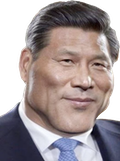- cross-posted to:
- worldnews@lemmy.ml
- cross-posted to:
- worldnews@lemmy.ml
The Chinese government has introduced a slew of new measures designed to tighten its grip on lucrative natural resources used in everything from electric cars to wind turbines. In a list released by the country’s State Council on Saturday, Beijing declared that rare earth metals are the property of the state and warned “no organization or person may encroach on or destroy rare-earth resources.” From Oct. 1, when the rules come into force, the government will operate a rare earth traceability database to ensure it can control the extraction, use and export of the metals. China currently produces around 60 percent of the world’s rare earth metals, and is the origin of around 90 percent of refined rare earths on the market. Advertisement
Beijing has already prohibited exports of rare earth refining and magnet manufacturing technologies. In January, it banned the export of gallium and germanium, both highly sought after by the computer-chip industry. Fears that China is looking to exert control over the industry, and could disrupt critical technology, automotive and renewable energy supply chains, have sparked a race to shore up supplies from alternative suppliers. Both the U.S. and the EU have launched efforts to procure rare earths at home and abroad, including in Vietnam, Brazil and Australia. A year ago, European Commission President Ursula von der Leyen announced construction of the first large-scale rare earth refinery outside of Asia, located in Estonia. She said the move would “bolster European resilience and security of supply.”
A 2022 analysis from the European Parliament warned that over-reliance on monopolistic suppliers was a major risk for Europe. “The EU imports 93 percent of its magnesium from China, 98 percent of its borate from Turkey, and 85 percent of its niobium from Brazil. Russia produces 40 percent of the world’s palladium,” it said. “The latter is a reminder of the strategic implications of the Russian invasion of Ukraine, and the need for the EU to prepare for an increasingly uncertain world.”
The EU has launched a probe into anti-competitive trading allegations against the Chinese electric vehicle market, which benefits from heavy government subsidies and preferential access to essential rare earth metals. Earlier this month, the two sides agreed they would host consultations in order to try and resolve the standoff.
That last paragraph really is so damning. It is admitting the superiority of China’s central planning and how it is being used to actually improve society. ”But at what cost?”
Well, apparently the cost is that shares of China’s largest rare earth mineral mining firm have gone up 5% since the announcement. China proving socialists right every single day and absolutely crushing the capitalist development speedrun challenge. It’s genuinely hilarious that the development plan of China runs basically like what I’ll describe below, and capitalist nations are just completely incapable of stopping it from happening because the power of capital is greater than the power of their states.
 “hmmm yes, today I will invest in the Chinese rare earth mineral market. Since China controls 90% of global production and all of the infrastructure is in place, all I have to do is bring my money, tech, and expertise with me and I’ll carve myself some serious profit! Easy money!”
“hmmm yes, today I will invest in the Chinese rare earth mineral market. Since China controls 90% of global production and all of the infrastructure is in place, all I have to do is bring my money, tech, and expertise with me and I’ll carve myself some serious profit! Easy money!”
 “Ahh yes thank you for the help developing our mining industry/technology Mr. Foreign Capital. We appreciate your business and you had a great run, but unfortunately for you we have nationalized your mineral resources. The extractive capitalism will now stop. Feel free to reinvest elsewhere or compete with us on the global market tho :)”
“Ahh yes thank you for the help developing our mining industry/technology Mr. Foreign Capital. We appreciate your business and you had a great run, but unfortunately for you we have nationalized your mineral resources. The extractive capitalism will now stop. Feel free to reinvest elsewhere or compete with us on the global market tho :)”
 ”China is nationalizing its rare earth minerals, but at what cost? We need to ban China from–“
”China is nationalizing its rare earth minerals, but at what cost? We need to ban China from–“
 ”Wait omg is that another investment opportunity in China where I can bring in my capital/technology/expertise to make some money? Hell yeah, where do I sign?”
”Wait omg is that another investment opportunity in China where I can bring in my capital/technology/expertise to make some money? Hell yeah, where do I sign?”
Rinse and repeat


deleted by creator
Joining the WTO was not because China changed ideology. It was a strategic goal to establish a position in the Western capitalist economic system that could be exploited to their advantage. They needed to do it because China had been outmaneuvered by the West economically and development was threatened. The cost of gaining access to the WTO was neoliberal policies, true enough, but that cost was imposed because of a power imbalance, not because of a sudden shift from Marxist to neoliberal ideology. Xi is overseeing a much more powerful China, which means less need to compromise. Xi does not need to gain entry into the WTO by convincing the West China will change. Xi is limited, however, by the need to not get kicked out of the WTO before sufficient development has occurred.
What will count as “sufficient development?” This isn’t me being anti-China, for clarity, I am just wondering what you think a likely timeframe is for China to get kicked out, if ever.
I think “sufficient development” to China means that it can’t get kicked out anymore for being too important. Too high tech, too much resource control, too much production, too wealthy, and most importantly TOO INTEGRATED.
China already has the WTO by the balls by tying the economy of THE global economic hegemon (USA) to Chinese industry. China could likely live on without the US, though certainly not without stress and careful planning. The US, on the other hand, could not simply find a new China. Frankly, it is evident in US foreign policy that the US knows this as well. There is no other critical game to the US outside of China. People will say Russia, or the Middle East, but they really are just peanuts comparatively. Whether it is combatting China, reigning in China, or trying to be technologically superior to China, almost all US foreign policy ties back into China somehow. I’d even argue that US policy towards Russia is simply an extension of US policy towards China at this point.
Pretty sure that’s been the case for some time. The goal was to isolate China by pulling Russia away from China by either enticing it towards the West or via regime change, and we’re seeing just how well that plan is working out so far with Project Ukraine being a complete disaster for them.
China getting kicked out of the WTO will be an attempt to harm China by the West. The West will kick them out when they decide it’s the correct course of action to reduce China’s power and influence globally. They have to do it before China has more leverage over them. It’s possible that this has already happened and the West will never kick China out until they go full military intervention.
Probably until industrialisation in china is complete. People seem to forget this because the Chinese economy has been stacking so many Ws recently, but Chinese industrialisation is still not complete. Less than 70% of the chinese population is urbanised. Almost a quarter or the population works in agriculture and mining. Chinese wages and working hours are still not on par with the advanced economies.
Iirc, the aim of the CPC has been “common prosperity” by 2021 (already achieved), and to create a “great modern nation” by 2049. I personally think that china’s development will become “suffiencient” to move to the next qualitative stage of socialism and fully break from world capitalism before then. The 2049 date is chosen not because that is a scientific estimate, but is the 100th anniversary of the founding of the prc.
deleted by creator